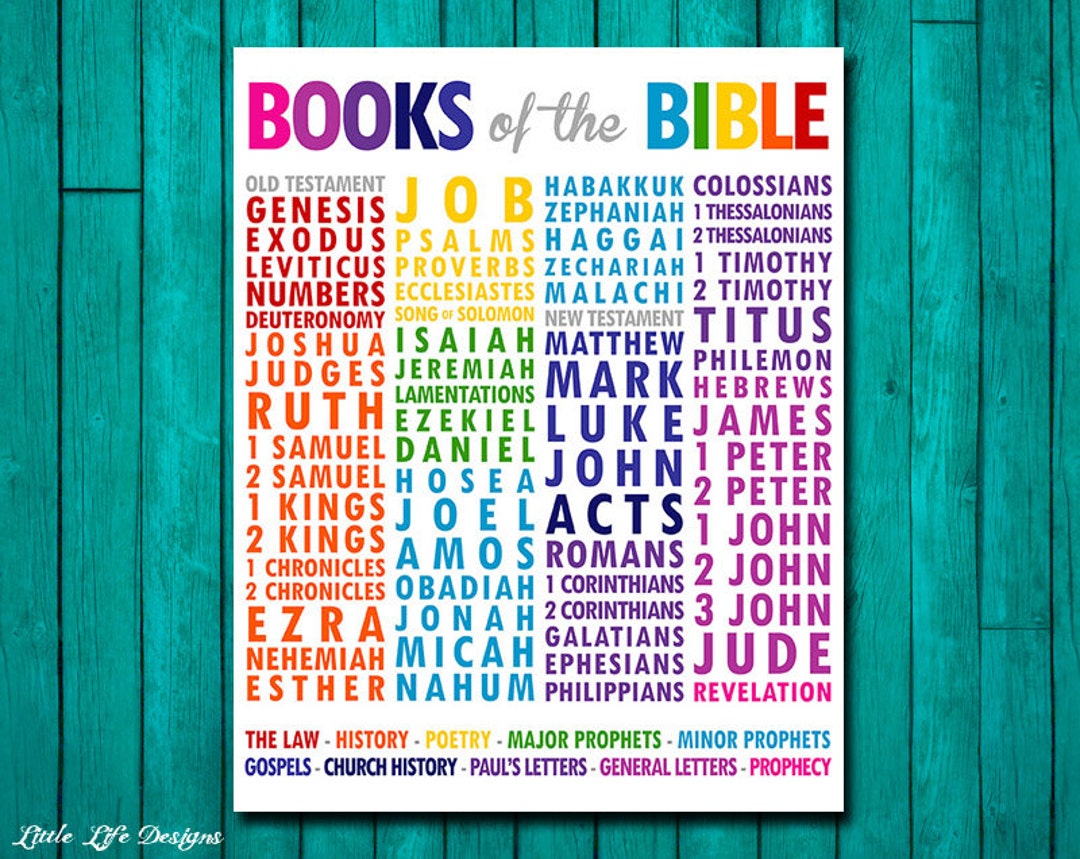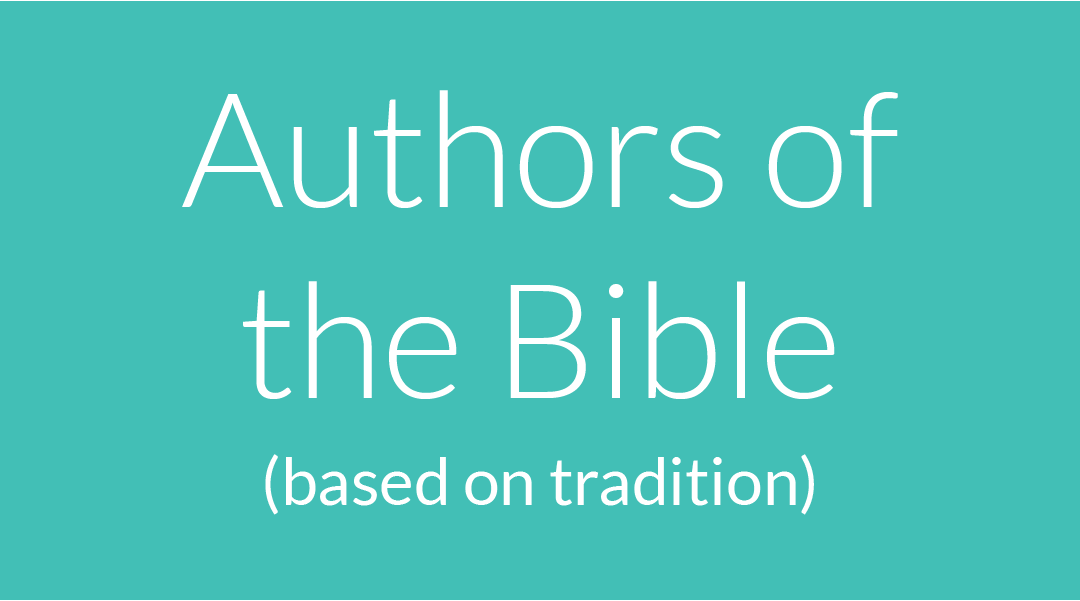The Books of the Bible: A Comprehensive Exploration

The Bible, a collection of sacred texts revered by billions, is not a single book but a library of 66 individual books, each with its own unique style, purpose, and contribution to the overarching narrative. Understanding the structure and content of these books is crucial for comprehending the rich tapestry of theological, historical, and literary significance woven within the Bible. This exploration will delve into the various aspects of the Bible as a collection, drawing parallels to the way we might categorize and understand secular literature. We will examine the books themselves, their authors, the lessons they impart, their impact on libraries and archives, and finally, their profound cultural influence.
Categorizing the Books of the Bible: Genres and More
Just as modern bookstores organize books into genres (classics, bestsellers, new releases, etc.), the Bible’s 66 books can be grouped based on their literary forms and historical context. This categorization helps navigate the complexity and appreciate the diverse literary styles employed.

Genres Within the Biblical Canon
The Old Testament, comprising 39 books, offers a rich variety of genres:
-
Law: The Pentateuch (Genesis, Exodus, Leviticus, Numbers, Deuteronomy) forms the foundational law, outlining God’s covenant with Israel, moral principles, and ritual practices. This section represents a legal and historical genre, detailing the origin and early development of the Israelite nation.
-
History: Historical books (Joshua, Judges, Ruth, 1 & 2 Samuel, 1 & 2 Kings, 1 & 2 Chronicles, Ezra, Nehemiah, Esther) chronicle the events of Israel’s history, from the conquest of Canaan to the Persian period. These narratives blend historical accounts with theological reflections.
-
Poetry: The poetic books (Job, Psalms, Proverbs, Ecclesiastes, Song of Solomon) express profound emotions, wisdom, and spiritual insights through lyrical language and imagery. Psalms, for instance, encompass a range of human experiences, from praise and lament to trust and despair. Proverbs offer guidance on practical living, while Ecclesiastes contemplates life’s meaning.
-
Prophecy: Prophetic books (Isaiah, Jeremiah, Lamentations, Ezekiel, Daniel, Hosea, Joel, Amos, Obadiah, Jonah, Micah, Nahum, Habakkuk, Zephaniah, Haggai, Zechariah, Malachi) communicate God’s messages, warnings, and promises through inspired pronouncements. Major prophets (Isaiah, Jeremiah, Ezekiel, Daniel) have longer books, while minor prophets deliver shorter, focused messages.
The New Testament, consisting of 27 books, also exhibits diverse genres:
-
Gospels: The four Gospels (Matthew, Mark, Luke, John) recount the life, ministry, death, and resurrection of Jesus Christ from different perspectives and with varying emphases. These biographical accounts are interwoven with theological interpretations.
-
Acts: Acts of the Apostles chronicles the early spread of Christianity following Jesus’ ascension, focusing on the ministry of Peter and Paul. This is a historical narrative detailing the growth and expansion of the early church.
-
Epistles: Paul’s letters (Romans, 1 & 2 Corinthians, Galatians, Ephesians, Philippians, Colossians, 1 & 2 Thessalonians, 1 & 2 Timothy, Titus, Philemon) and the other epistles (Hebrews, James, 1 & 2 Peter, 1, 2 & 3 John, Jude) address various theological and practical issues within early Christian communities. These letters offer instructions, exhortations, and corrections for specific situations.
-
Apocalypse: Revelation provides a symbolic and visionary depiction of the end times, offering hope and encouragement amidst persecution. This apocalyptic literature uses allegorical and symbolic language to convey spiritual truths.
Biblical “Bestsellers” and Classics
While sales figures are impossible to compile for ancient texts, certain books within the Bible hold immense cultural and theological significance, earning them the status of “classics” and enduring relevance across centuries and cultures:
-
Genesis: This foundational book establishes the creation narrative, the patriarchal history, and the origins of humanity’s relationship with God, making it a cornerstone of Biblical theology.
-
Psalms: Its timeless expressions of faith, doubt, praise, and lament resonate deeply with readers across generations. The Psalms are widely used in worship services and personal devotion.
-
Proverbs: This collection of wisdom sayings offers practical guidance for daily living, making it a continuously relevant and widely read book.
-
The Gospels: The narratives of Jesus’ life and teachings remain central to Christian faith and have inspired countless works of art, literature, and music.
-
Romans: This pivotal letter by Paul articulates core Christian doctrines, particularly concerning salvation and justification by faith, influencing theology and shaping various Christian denominations.
The Bible’s lasting appeal lies in its varied genres and enduring themes that continue to engage readers across diverse cultures and historical periods.
The Authors of the Bible: Insights into Their Lives and Works
The authors of the Biblical books represent a diverse range of individuals from various social strata and historical periods. Understanding their backgrounds and perspectives enriches the understanding of their writings. While the exact authorship of some books remains debated, significant biographical information is available for many.
Biographical Sketches and Writing Styles
Many of the books are attributed to specific individuals, including:
-
Moses: Traditionally credited with authorship of the Pentateuch, Moses’ background as a leader of the Israelites shapes the narrative’s focus on law, covenant, and God’s deliverance.
-
Kings and Chroniclers: The historical books of the Old Testament often reflect the perspectives and interests of the ruling monarchs and their court chroniclers.
-
The Prophets: Prophets like Isaiah, Jeremiah, and Ezekiel delivered their messages within specific socio-political contexts, their writings reflecting the challenges and opportunities of their times.
-
The Gospel Writers: Matthew, Mark, Luke, and John each crafted their Gospel accounts with distinct theological emphases and literary styles, reflecting their individual understanding of Jesus’ ministry.
-
Paul the Apostle: Paul’s letters, characterized by their passionate and argumentative style, provide insight into the burgeoning Christian movement and its theological development.
The authors’ diverse backgrounds, writing styles, and historical contexts contribute to the rich texture and complexity of the Biblical narrative. Each book reveals the author’s perspective, adding a unique voice to the overall story.
Inspirations and Famous Works
The inspirations for the Biblical books are rooted in divine revelation, personal experiences, and historical events. These sources interweave to create a rich tapestry of faith, history, and literary artistry.

The “famous works” aspect requires a different approach. While we might not label individual books “bestsellers” in the modern sense, many have exerted immense influence across centuries and continents. For example, the Psalms have provided comfort and inspiration for countless individuals, while the Gospels have shaped the fundamental doctrines and practices of Christianity. The prophetic books have influenced social justice movements and interpretations of world events, while the wisdom literature of Proverbs and Ecclesiastes continues to offer timeless guidance. The influence of these books transcends simple literary appreciation, profoundly shaping cultures and beliefs worldwide.
Reading and Learning from the Bible: Summaries, Educational Value, and Life Lessons
The Bible offers a vast source of information and inspiration for personal growth and understanding. The reading and interpretation of scripture vary widely, but several key aspects stand out.
Summaries and Educational Value

Summarizing the Bible in its entirety is a monumental task. However, summaries focusing on specific books, themes, or periods are readily available. The educational value of the Bible is immense:
-
Historical Context: The Bible provides valuable insights into the ancient Near East, the development of early Judaism, and the emergence of Christianity.
-
Literary Merit: The Bible’s literary style, including poetry, narrative, and prophecy, has influenced countless writers and artists.
-
Moral and Ethical Teachings: The Bible’s teachings on morality, ethics, and social justice remain relevant and influential today.
-
Theological Depth: The Bible explores profound theological questions about God, humanity, creation, sin, salvation, and the afterlife.
Life Lessons and Reading Habits
The Bible is replete with life lessons:
-
Faith and Trust in God: The Bible portrays countless examples of faith and trust in God’s promises, even amidst adversity.
-
Importance of Relationships: The Bible emphasizes the importance of loving relationships with God, family, neighbors, and even enemies.
-
Significance of Forgiveness: The Bible’s message of forgiveness and reconciliation is central to Christian teachings.
-
Pursuit of Justice and Compassion: The Bible calls for justice for the oppressed and compassion for the vulnerable.
-
Moral Integrity: The Bible emphasizes the importance of living a life of honesty, integrity, and accountability.
Reading habits vary widely. Some people read the Bible chronologically, others thematically, and still others focus on specific passages or books. Effective study often involves reflection, prayerful consideration, and engagement with diverse interpretations.
The Bible in Libraries and Archives: Preservation and Accessibility
The Bible’s presence in libraries and archives worldwide underscores its enduring cultural and historical importance.
Public, Digital, and Rare Collections
The Bible is a cornerstone of many public libraries’ collections. Digital libraries provide readily accessible versions in numerous translations, fostering wider access to scripture. Rare collections preserve ancient manuscripts and early printed editions, revealing the evolution of biblical texts and interpretations through history. Archives house documents and materials related to the translation, interpretation, and dissemination of the Bible, reflecting its impact on scholarship and culture.
The Role of Archives in Preserving Biblical History
Archives play a critical role in preserving documents related to the history and interpretation of the Bible:
-
Manuscript Studies: Archives house ancient manuscripts, allowing scholars to trace the transmission of biblical texts through time.
-
Translation History: Archives document the history of biblical translations, revealing the cultural and linguistic influences on the rendering of scripture.
-
Commentary and Interpretation: Archives preserve commentaries and theological interpretations of the Bible, reflecting the ongoing conversation and diverse understandings of scripture.
Cultural Impact of the Bible: Literary Influence, Adaptations, and Communities
The Bible’s cultural influence is undeniable, extending across literature, art, music, law, and social movements.
Literary Influence and Adaptations
The Bible’s narratives, characters, and themes have inspired countless works of literature, including novels, poems, plays, and films. Numerous literary works directly engage with biblical stories, retelling them or exploring their implications in modern contexts. The impact stretches across diverse genres and literary movements.
Awards, Communities, and Continued Relevance
The Bible’s enduring influence is evident in the numerous awards given to works inspired by it and the thriving communities that have developed around its study and interpretation. Christian denominations, Bible study groups, and theological institutions reflect the ongoing engagement with the Bible’s teachings. Despite the passage of centuries, the Bible’s moral, ethical, and spiritual teachings remain relevant, engaging people from all walks of life and shaping their views of the world. The continuing discussion and debate surrounding biblical interpretations demonstrate its ongoing cultural impact and its capacity to inspire diverse perspectives and interpretations.